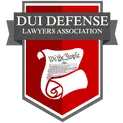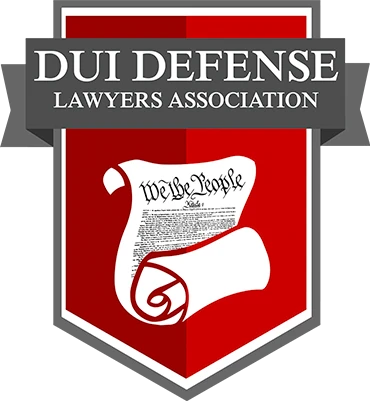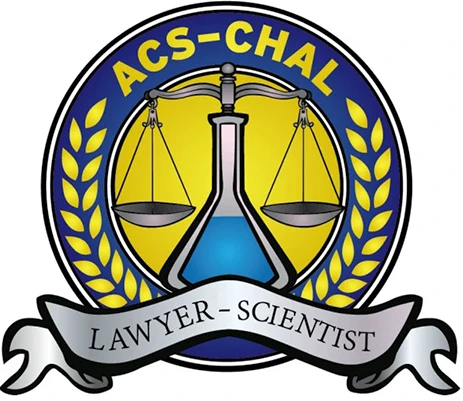Read part 1 >>>
What to Expect at a DWI Trial With a Breath Test
A jury trial for a breath test is an opportunity to win a case when the state wasn't willing to offer an acceptable outcome. Risk of conviction exists, too. The stakes are high because juries are given only two options: guilty and not guilty.
We clearly want a verdict of not guilty. The way we get there is to have every juror vote not guilty. Ultimately, DWI defense lawyers need to demonstrate why jurors should have reasonable doubts about the state's case. If jurors have a single reasonable doubt after deliberating, the law says the accused must be found not guilty, also known as being acquitted.
Attitudes, Goals, and Limitations
At a minimum, the bread and butter of defense is highlighting reasons for doubting the state's evidence. Sometimes, we have evidence of our own to highlight, but the goal is to give jurors as much reason as possible to doubt the state's evidence. The more sources of doubt are present, the more likely a not guilty verdict is. There is no limit on the number of or kind of reasonable doubts a juror may have, nor why they have any. Anything they can imagine is a potential source of doubt. Breath testing provides ample reasons for doubt.
One thing to note is critical: a breath test is not the only evidence in a DWI case. If other evidence can prove intoxication, beating a breath test may not help at all. For example, if a person is arrested after being stopped for driving the wrong way and narrowly avoiding a head-on collision, as well as being so drunk as to be catatonic, successfully fighting a high breath test may not help much. Even getting a breath test thrown out of court would leave the rest of the evidence to be used in court. The person still needs a lot of help from a lawyer, even if a strong defense against intoxication is not possible.
Fighting a breath test is far more likely to be helpful in a case involving a safely driving person who at least appears fairly sober during the police encounter. Also, if the breath test result is extremely high, yet video shows the person doesn't appear to be intoxicated, a plausible argument can be made to a jury that the test was falsely high. Of course, that would be good reason to doubt the number provided by the breath test device.
The Basics of a Jury Trial
Local residents of the county will be summoned to court and questioned by the judge and lawyers, then the crowd will be thinned out by their answers and by strikes each side can use to keep some people off the jury. After a jury is selected, they usually hear opening statements by each side, then evidence is presented by the state because the state has the burden of proof to prove every element of the case, including intoxication, beyond a reasonable doubt .
After presentation of evidence ends, the judge explains the law to the jury. Each side then gets to present closing statements. The jury is sent to a room where they decide the verdict, if they can. To reach a verdict, the jurors must be unanimous. If they cannot come to a unanimous decision of guilty or not guilty, a mistrial is declared, and the state must choose whether to retry the case with a new jury. If the verdict is guilty, sentencing would be next. If the verdict is not guilty, the case is over for the accused.
Witnesses To Expect
You should expect to have at least two witnesses in a breath test case: the officer conducting the breath test and his/her supervisor, who is in charge of the breath test machine.
In most cases, the arresting officer and breath test operator (BTO) are one in the same. A BTO has training which can be summarized as 1) observe the DWI suspect for 15 minutes immediately prior to samples being provided, so as to monitor whether the suspect burped, hiccupped, or vomited shortly before the breath test was administered; 2) turn on machine and let it warm up and do its internal checks; 3) put a new mouthpiece on the breathing tube; 4) tell the person when it's time to blow; 5) follow the on-screen prompts of the breath test device after turning it on and letting it warm up; and 6) get the printed report of results.
The breath test supervisor will testify about the general concepts of breath testing, the breath test device itself, the review of the BTO's records, and the supervisor's own performance regarding the maintenance of the breath test device. You can expect to hear and/or see images of the machine and its flow chart about what happens inside the machine as a person blows into it. This witness is unlikely to have seen anything about the facts of the case, such as driving or behavior of the driver. Instead, this witness testifies primarily about the machine itself and related questions. This witness is usually a chemist who may also offer an opinion about what someone's alcohol level was while driving, compared to the result obtained from a breath sample an hour or more later; the term for this process is retrograde extrapolation.
Jury Decides Whether Evidence Proves Intoxication
Juries determine the facts in the trial and apply those findings to the law, which is provided to the jury in writing by the trial judge.
Evidence does not necessarily equal proof. Evidence is what the judge will allow the jury to see or hear. Proof is the value of evidence assigned by a jury.
For example, a witness who is plainly lying or is obviously mistaken about what happened still could be allowed to testify. The content of that testimony is rightfully called evidence. However, a jury is under no obligation to believe anything a witness says. Thus, while a witness' testimony, even that of an eyewitness or an expert witness, may conclusively state everything necessary to make a person appear guilty, a jury may consider the testimony totally false. In such a circumstance, the "evidence" amounts to no proof at all.
Potential Arguments For Court
It takes skill and knowledge to use arguable issues effectively in court. If the attorney doesn't understand the issues, there's little hope he/she can argue them to the jury, much less skillfully develop the evidence during trial. Make sure you hire an attorney who is conversant about all the topics.
Some positions are used as a way to interpret evidence, but they are paired to no direct evidence. Other positions require the attorney to elicit particular testimony from witnesses and to enable the jury to consider favorable documentation, such as a chart from the expert's training books.
It's Not All About Law
Sometimes, the evidence can cause jurors to feel moral disapproval of what the state, cops, or Department of Public Safety has done. Legally, jurors are supposed to apply the facts they determine to the law presented by the judge. However, it would be naïve to think they are always as disciplined as the law expects.
For example, feelings of moral indignation can arise in jurors when they learn of assumptions the state makes which could unfairly harm people, and that may influence them to vote not guilty, even when the proof seems to favor the state. Disgust with one side can change opinions of the evidence presented by that side. When you are disgusted by someone, you tend to resist what they have to say, and that can be expressed in a verdict.
Remember, the state is responsible for eliminating all reasonable doubts from jurors' minds. Your DWI defense lawyer should be trying to inspire and stimulate those doubts.
Here's a partial list of topics with arguable issues. Some are topics were not covered in earlier posts, but they still can apply.
2100:1 Breath to Blood Ratio
Breath testing is flawed and inaccurate because it is based on a biological assumption which isn't true: a fixed breath to blood ratio in every person. That ratio is always applied to results coming from an Intoxilyzer 9000 , the breath test device Texas uses for evidence.
Time of Driving
Evidentiary breath tests are not conducted while driving. Frequently, results come from samples submitted an hour or two after driving. The alcohol level in the arrested person at the time of driving MAY be the same as the reported result, OR higher, OR lower. The state expert for the breath test may want to apply retrograde extrapolation to the result in an effort to claim a certain alcohol level existed at the time of driving.
Retrograde Extrapolation
This is a calculation deemed to be "dubious" by one of the most respected researchers in the history of breath alcohol research. The expert witness will know the researcher's name and acknowledge his status as more authoritative than anyone in Texas. Retrograde extrapolation is a practice fraught with problems, assumptions, and an almost ever-present lack of facts upon which to base an opinion.
15-minute Observation Pre-Blow Period Not Observed
Potential burping/vomiting could contaminate any sample because alcohol from the stomach would mingle with the alcohol from the lungs.
Body/breath temperature
Higher breath temperature leads to higher sample result.
Preservation of Evidence
The state could preserve a breath sample for retesting, but they don't.
Indirect measurement may not be accurate
The breath test number is not a direct measurement of a sample. It measures electrical impulses from a incredibly tiny breath sample, then mathematically turns it into a .08 format. Doing so requires multiplication of the sample by thousands of times its actual size. Even worse, the state refuses to disclose how any of it is calculated, and the law doesn't require it.
Failure to get blood from a cooperative person
Cops get to choose whether to ask for breath or blood samples after DWI arrests. People usually believe blood is more accurate than breath. So, if the cop chooses less reliable evidence, the jury should discount the evidence accordingly.
Radio Frequency Interference (RFI)
RFI can interfere with electronic signals in the Intoxilyzer 9000. Sometimes, powerful radios are used within a foot or two of the breath test device. For those old enough to remember it, it's like how an electronic device affects a television antennae; you can literally see the effects of the RFI on screen. Possible sources of RFI may include police radio, electronic devices, and the location of the 9000 device.
Residual mouth alcohol
Residual mouth alcohol can result from braces, dental work, piercings, gastroesophageal reflux disease (GERD), and dentures.
Sanitation
How dirty is the breathalyzer? How often has it been cleaned? Is there any carry over? Foreign contaminants can affect the device’s sensitivity.
Were all DPS rules followed?
If not, this is a fertile field of opportunity. Would you want to be convicted on the basis of a number when that number could be higher or lower by 25%? Of course not. You'd want that number to be much more reliable. Following DPS rules means it is even worse than that crazy inaccuracy. Wild variances like this are taken straight out of DPS materials.
Maintenance
Has the breath test device been properly maintained? Were the rules followed? How often is maintenance performed on the machine? When was the last time it was serviced before this arrest?
Picking Your Lawyer is Essential
Breath test cases have lots of built-in problems which can be highlighted by a skilled attorney who knows DWI law and breath testing.
If a lawyer cannot intelligently discuss and explain the topic of breath testing to you, that lawyer is not someone you should hire for a DWI. If a lawyer can't discuss the topic with a non-lawyer like you, you shouldn't expect that lawyer to be able to explain it to a jury of non-lawyers.
A lack of knowledge or inability to comfortably discuss it would be indicators of a lawyer who does not take DWI defense seriously or is incapable of understanding. Neither is acceptable for your case and your future.
Your DWI case can affect the rest of your life, so before you choose who to hire pay careful attention to whether they can demonstrate their knowledge. You don't want someone who talks a big game but can't explain specific details about the Intoxilyzer 9000.
When it comes time to hire your DWI defense lawyer, you won't blow it. Hire Phillip W. Goff.















